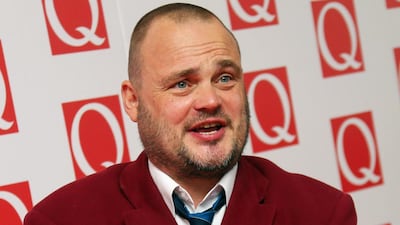Singer-songwriter Tom Lehrer once famously declared that “political satire became obsolete when Henry Kissinger was awarded the Nobel Peace Prize”. Now, Al Murray, a popular British comedian, has put his own spin on the genre by declaring his intention to stand for parliament at the general election in May.
Murray has carved a successful TV career acting out the role of a typically xenophobic, bigoted and small-minded Anglophile. Murray has brought his Pub Landlord act to Dubai on several occasions.
Murray’s decision to stand for election as MP in Thanet South is one of careful calculation. It is the same constituency that Nigel Farage, the leader of the United Kingdom Independence party, is also contesting.
Murray’s manifesto, announced last week, is deliberately designed to lampoon UKIP, a party many accuse of being, like the comedian’s fictional creation, comprises xenophobic, bigoted and small-minded anglophiles.
Among the election pledges is a promise to revalue the £1 coin to £1.10 (“thus giving everyone 10 pence more”) and to brick up the Channel Tunnel to prevent further immigration. Murray also pledges to have the UK withdrawn from the EU by 2020, while unemployment is to be made a crime punishable by imprisonment.
To Mr Farage’s credit, he managed to offer a rictus grin and a stilted word of welcome to his new and unwanted political rival. “The Pub Landlord? Now that’s what I call some serious opposition”, he chirruped on his Twitter account last week.
And in truth, scurrilous fringe political parties have a rich heritage in British politics, ever since showbiz personalities realised it was a cheap way to achieve national exposure. Throughout the 1980s and 1990s, The Official Monster Raving Loony Party was a familiar presence at by-elections throughout the country, usually in the guise of the self-styled Screaming Lord Sutch, a former pop singer turned self-publicist.
A couple of hundred votes at the ballot box and a brief appearance on our TV screens when the result was declared was all Lord Sutch ever craved, and inevitably all he ever got. Indeed, he lost all 40 elections he contested.
More recent examples include the Fancy Dress Party, the Teddy Bear Alliance, and the Bus Pass Elvis Party, each of which have flittered briefly across the political landscape without causing much more than a wry smile from politicians and pundits. They have added to the fun, but little more.
But Murray’s intervention in Thanet South could be more fraught. While Mr Farage may be an object of scorn and derision among many at Westminster, for a wide preponderance of traditional working class voters, especially those in the south-east – where Thanet is located and where Mr Farage has a very real prospect of being elected – he and his party are seen as offering a mouthpiece for local views and concerns.
The people of Thanet may not take kindly to seeing their self-proclaimed champion sent up by the presence of a TV comedian, one who arguably has no place in the political arena. Indeed, when another popular (and populist) celebrity, Russell Brand, took the chance on a recent TV political chat show in the nearby city of Canterbury to savage the UKIP leader to his face, he was stopped in his tracks and roundly condemned by a vociferous reaction from many in the audience, for whom Mr Farage is something of a hero. Having been turned upon so unexpectedly, Brand barely opened his mouth during the rest of the programme.
The incident serves as a warning. However highly Murray’s Pub Landlord is rated as entertainment, the people of Thanet may not want him meddling in their affairs. He may go down a storm on TV, but whether voters will see the funny side of things next May is quite a different matter.
Michael Simkins is an actor and writer usually based in London
On Twitter: @michael_simkins

